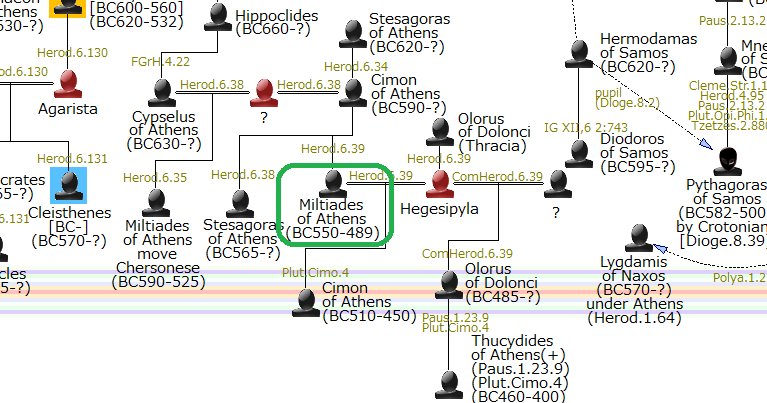1. Mentions in historical sources from which the date of the Battle of Marathon can be estimated
(1) The Persians were defeated by the Greeks on the sixth day of the month of Boedromion. [Plut.Cami.19]
(2) The Persians waited for the full moon. [Suda.pi.214]
(3) It was the ninth day of the month when the messenger arrived at Sparta on the second day. [Herod.6.106]
(4) The Miltiades, who saw the Persian cavalry withdraw, opened the battle. [Suda.chi.444]
(5) Spartans arrive in Athens after full moon. 3rd day after leaving Sparta. [Herod.6.120]
2. The date of the Battle of Marathon
According to the list of historical solar eclipses posted on websites such as NASA, it is known that there was a solar eclipse on October 2, 480 BC, so it was a new moon on that day. [https://eclipse.gsfc.nasa.gov/SEhistory/SEhistory.html]
Going back from this day, if the full moon of the month Boedromion, which is considered to be September in the present calendar, is calculated as 29.53 days, the cycle of the moon is calculated as follows.
The 15th day from BC480.10.2 (new moon) is BC480.10.17 (full moon).
Intercalary year (BC480, 484, 488) BC480.10.17 - BC490.9.17 (365 * 10 + 3 + 30 = 3683 days)
3683 / 29.53 = 124.72062 ----- 29.53 * 125 = 3691.25 = 3691= BC490.9.9 (full moon)
It was on the 11th day of the month that the Athenian messenger returned from Sparta to Athens.
The Persians waited for the full moon, so the battle was before the 15th day of the moon.
The battle is therefore estimated to be between 12 and 14 months old.
However, the battle was presumed to be the day before the full moon, as the Athenians were looking for an opportunity to open the battlefield.
From the above, the date of the Battle of Marathon is estimated to be September 8, 490 BC.
End

